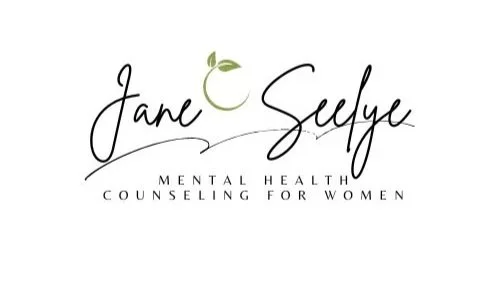Trauma & the Holidays: Navigating Difficult Emotions
For many, the holiday season brings warmth, connection, and tradition.
But for others, especially trauma survivors, this time of year can stir a quiet ache. A heaviness. A dissonance between what’s expected to feel joyful and what’s actually happening inside.
The holidays can hold grief, estrangement, overwhelm, complicated family dynamics, or the quiet exhaustion of trying to hold it all together.
If that’s your experience, you’re not alone, and there’s nothing wrong with you.
This post is an offering of gentle support for navigating the holidays when they feel hard, with presence, with boundaries, and with care.
The Weight of Expectations
Holiday messaging is often loud, bright, and relentlessly cheerful, and it rarely leaves room for the “both/and” of being human.
You may feel:
Pulled into old roles or family patterns
Disconnected from yourself in social settings
Heightened anxiety, freeze, or shutdown in the presence of certain people
Grief for relationships or memories that no longer feel safe
Pressure to perform joy, even when your body is saying otherwise
Trauma doesn’t disappear just because the calendar says it’s time to celebrate. In fact, it often surfaces more loudly when routines shift and familiar pain is reactivated.
Why the Holidays Can Feel So Tender for Trauma Survivors
Trauma lives in the body. It remembers, not through logic, but through felt sense: smells, songs, places, voices, silences.
The holidays often reintroduce us to:
Environments where harm happened
Family members who weren’t safe
Traditions that no longer fit who we are
Old survival strategies that no longer serve the life we’re building
This time of year can act like a mirror, reflecting not only who we are, but who we were, what we’ve lost, and how much we’ve carried.
And still, healing is possible here.
Not through pretending, but through presence, boundaries, and care.
Ways to Support Yourself During the Holiday Season
There is no one-size-fits-all approach to navigating this time of year. What soothes one person might overwhelm another. But these practices are simply invitations, gentle pathways back to yourself.
1. Name What’s True, Without Shame
You don’t have to pretend to feel festive.
Give yourself permission to feel what’s actually here, even if it’s grief, irritation, numbness, or ambivalence.
Try:
“I notice I feel heavy today. I don’t need to fix it, just acknowledge it.”
“Part of me wants connection, and part of me wants space. Both are welcome.”
Truth-telling, even quietly to yourself, can be deeply regulating.
2. Set Boundaries That Honor Your Nervous System
You don’t owe anyone access to you, especially if that access requires self-abandonment.
You’re allowed to:
Leave early
Skip events entirely
Opt out of conversations that feel re-traumatizing
Say no without over-explaining
Choose peace over performance
A boundary isn’t rejection.
It’s a way of staying in relationship with yourself.
3. Create a Soft Place to Land
If certain gatherings or family spaces are unavoidable, plan for what you’ll need before and after.
You might try:
Bringing grounding objects (a stone, essential oil, or item that helps you feel safe)
Taking short breaks alone, even five minutes to breathe or walk
Texting someone who feels like safety
Scheduling a quiet day afterward to rest and reset
You get to shape your experience as much as possible, even in small, quiet ways.
4. Honor What’s Missing
Grief often rides alongside the holidays, grief for people, places, or parts of yourself that are no longer here.
Rather than pushing grief away, you might gently make space for it.
Options:
Lighting a candle for someone or something you’re missing
Writing a letter you don’t need to send
Listening to music that helps you feel
Letting a few tears move through if they come, you don’t need to hold it all
Grief doesn’t ruin the holidays.
It simply reminds us of our capacity to love.
5. Return to the Present Moment
Trauma often pulls us into the past. Stress can project us into the future.
The body finds relief in the now.
Try:
Holding a warm mug and noticing it’s weight and warmth
Naming 3 things you see, 2 you hear, 1 you feel
Placing a hand on your chest and breathing slowly
Asking gently, “What’s here right now?”
You don’t have to feel grounded all the time.
But each small return to presence matters.
You Are Not Alone
This time of year can amplify loneliness, especially if you’re choosing to step away from relationships or traditions that no longer serve you.
Please remember:
Choosing yourself is not selfish.
You are allowed to define family, love, and celebration in your own way.
You are not broken for struggling during the holidays.
You do not have to go through this season alone.
Support can be found, in therapy, in chosen relationships, and within your own growing relationship with yourself.
You’re Allowed to Do It Differently
Healing invites us to do things differently than we did before, even if others don’t understand.
You’re allowed to:
Not go home.
Grieve something others celebrate.
Hold complexity.
Take care of yourself first.
The holidays don’t have to be magical or perfect.
They just need to be honest.
And that can be enough.
If this season feels heavy you don’t have to navigate it alone. I offer a compassionate space to help you honor your emotions, set gentle boundaries, and move through the holidays with care, and presence. Reach out below to connect and take a step toward feeling supported and steadier in yourself.
